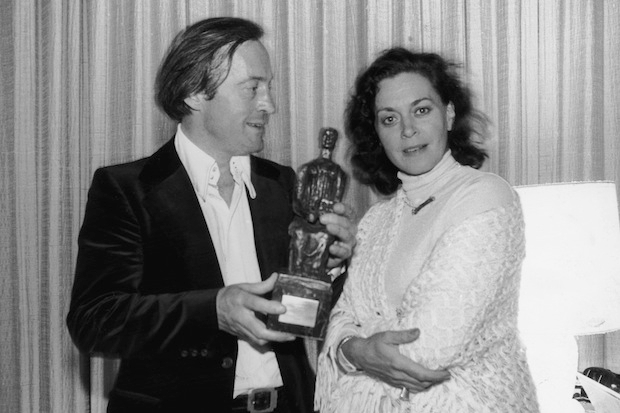One curious fact about Sir George Christie, who died last week, aged 79, was that he always cut his own hair, a notoriously difficult thing to do. He did it with a three-way mirror and, according to his wife Mary, did it very badly. His reason, apparently, was a reluctance to waste money on a barber. For while George was very well-off (and the epitome of generosity when it came to others), he hated to spend anything on himself. For example, he never took a taxi — he would always travel in London by Tube or bus, even to such an event as the Queen’s Diamond Jubilee service in St Paul’s Cathedral — and he had his suits made by the wardrobe department of the Glyndebourne opera company rather than pay a London tailor. His thrift, however, didn’t extend to wine, which he loved as much as he hated water, and of which he possessed an excellent cellar. When he was weakened by his final illness, his main complaint was that he was no longer capable of walking off his hangover.
George was in one sense a conventional example of an old-fashioned country gentleman. The heir to great estates in both Devon and Sussex, he loved the country and its traditional pursuits, shooting and fishing. But he was also mischievous, irreverent, open-minded and devoid of snobbery. And luckily, for a man who inherited an opera house, he was not only an art lover but also a lover of music. At school he was taught the violin by Sir Neville Marriner (no less), who said, however, that George was the worst pupil he had ever had. His father, John Christie, who, with his wife, the soprano Audrey Mildmay, had used his inherited wealth to build a little opera theatre as an annex to their Sussex home and put on their first season there in 1934, sent her and their two children to Canada for the duration of the second world war. George, who would have been about six years old when they left England, was happy ‘running wild’ during his years in Canada, according to Mary; but he received very little education and needed a lot of extra coaching when he came back afterwards to attend an English prep school.
He went on from there to Eton (where his father had been a schoolmaster, and who would later invite a group of Eton boys — once including me — to a Glyndebourne opera each year) and thence to Cambridge University, which he left before taking a degree. I’m not clear why he left when he did, but his departure enabled him to prepare early for his destiny as an opera festival supremo by getting a job in London with the Gulbenkian Foundation and learning about fund-raising. This was an art at which he was to excel, using his own great charm and that of his wife Mary, together with their prodigious hospitality to all and sundry, to keep Glyndebourne, as his father intended, Britain’s only privately funded opera house, totally independent of the state. It was a combination of these fund-raising skills, his thrift and his meticulous attention to detail in all matters that enabled him to achieve the seemingly impossible task of building in the 1990s a superb new opera house at Glyndebourne, on time, on budget, and without a penny of government subsidy.
Because of its non-dependence on government, Margaret Thatcher considered Glyndebourne a model arts institution and showed her appreciation by loyally attending an opera there each year, despite her lack of enthusiasm for this particular art form. Denis disliked it even more; and once, when due to join her at Glyndebourne for a Mozart opera, he deliberately arrived late from the golf course, hoping to be denied admission to the theatre until after the first act, which he would spend at the bar instead. But he had got the time wrong and arrived before the opera had started; and George told me that he had never seen a man’s face go so white as when he informed Denis Thatcher that he could attend the first act after all.
George was deservedly made a Companion of Honour in 2001, but long before that, in the mid-1980s, he had been given a knighthood. The story goes that soon afterwards, someone asked him what he thought of ‘surtitles’, a novelty in opera performances at the time. Misunderstanding the question as a reference to ‘Sir’ titles such as his own, he is said to have replied that he was quite in favour of them. But he was in fact the least vain or pompous person you could ever hope to meet.






Comments